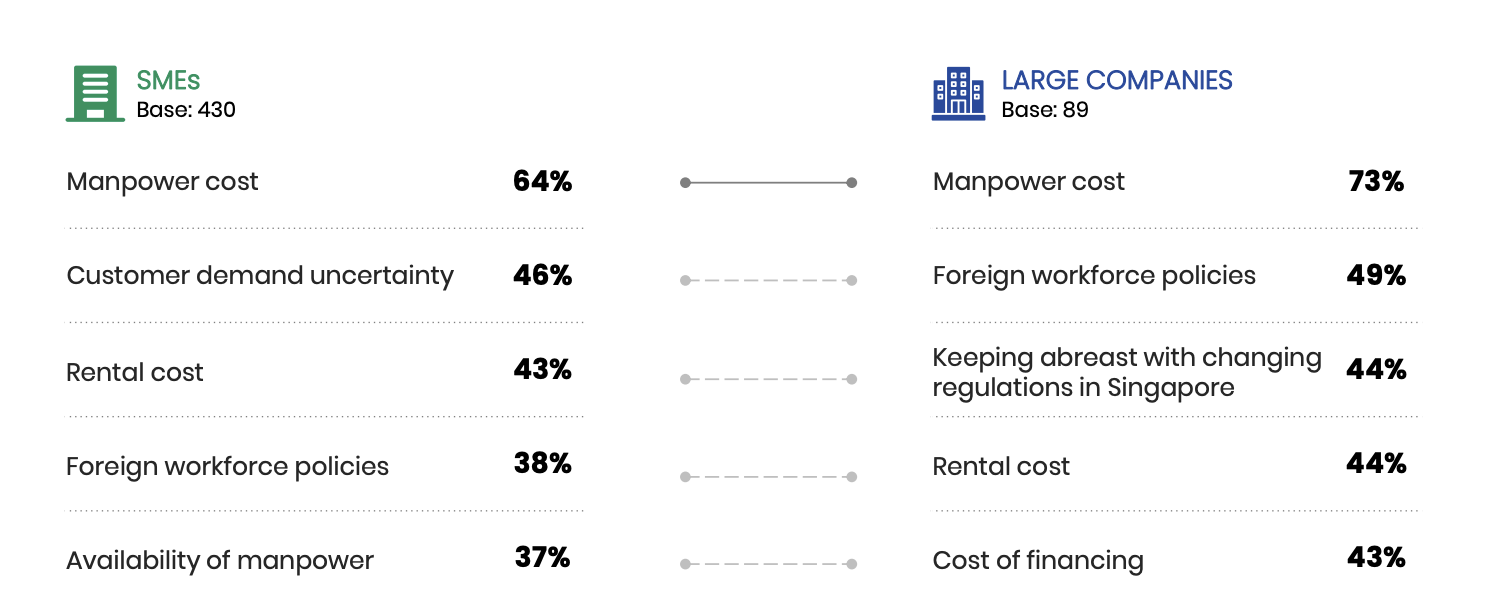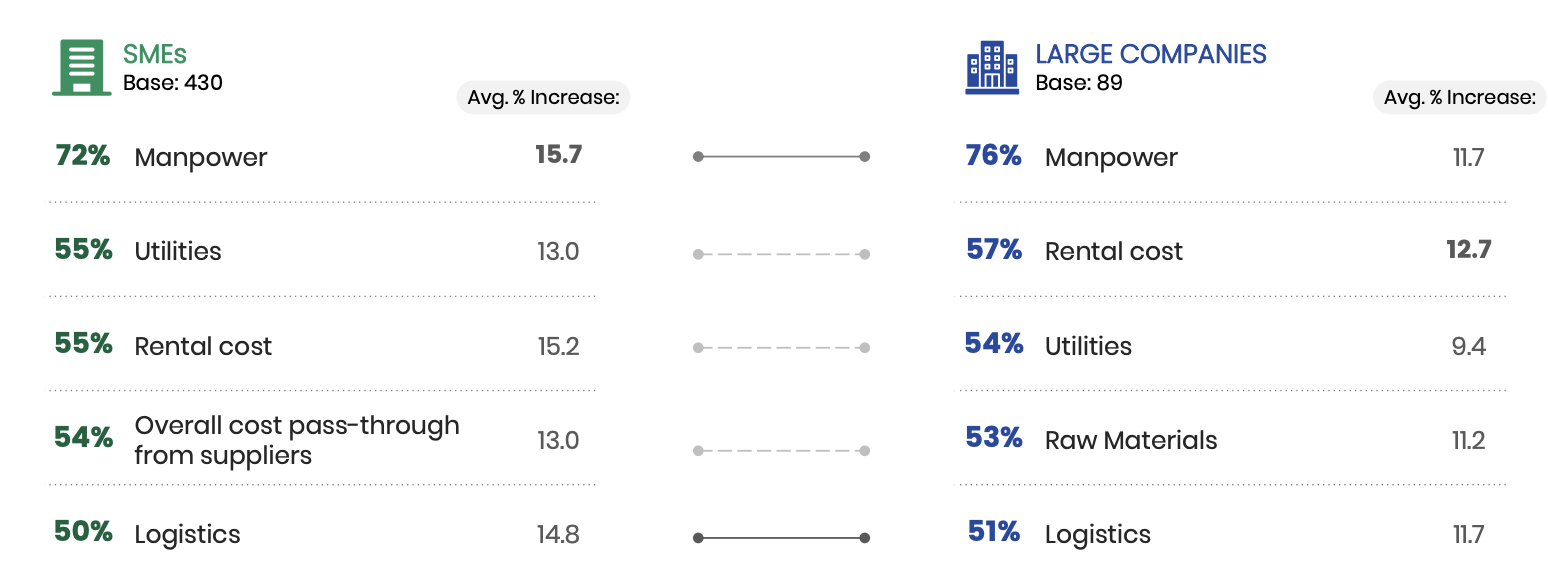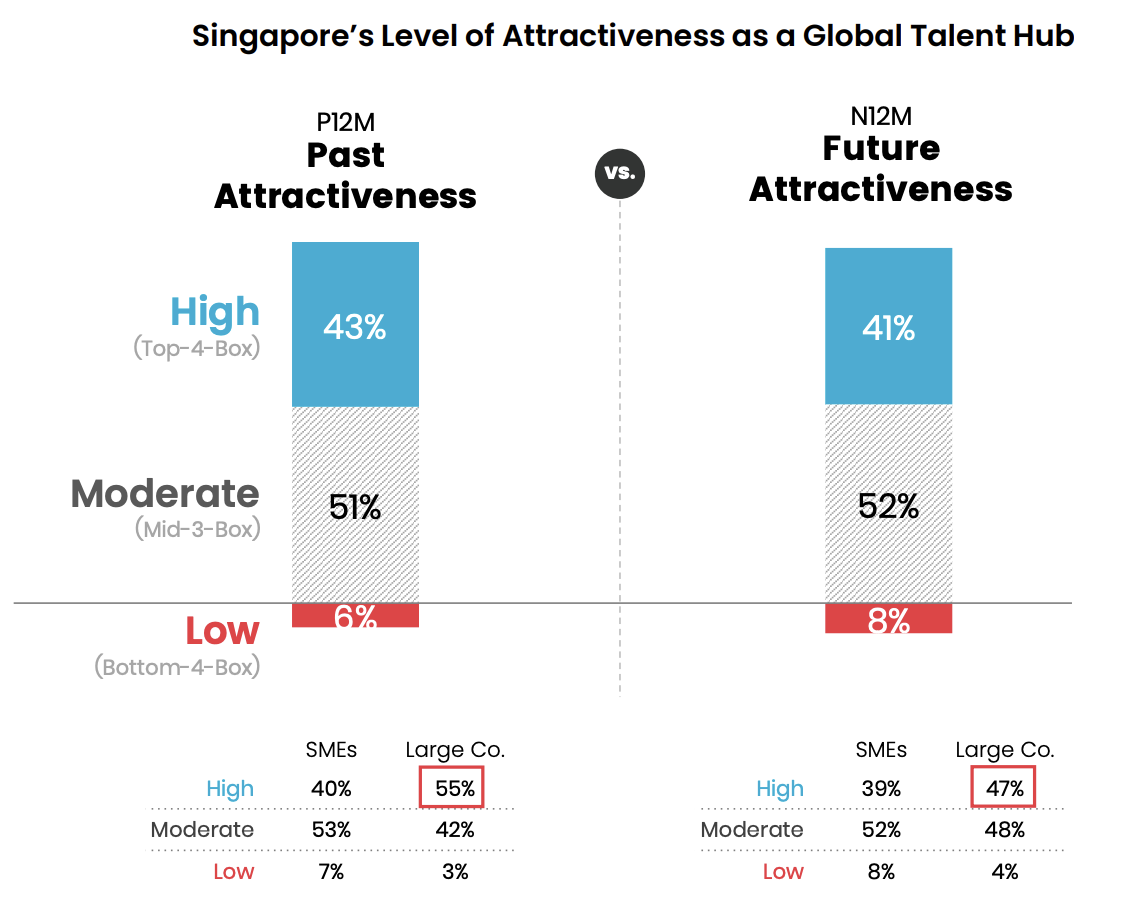
New report finds Singapore's global talent hub status declining

Manpower costs have remained as the top business challenge for businesses operating in Singapore, according to a new report, which also indicated a declining outlook towards the country's status as a global talent hub.
The report, carried out by the Singapore Business Federation (SBF), found that 66% of employers have cited manpower cost as their top challenge.
The percentage goes up for large companies, with 73%, but slightly falls below the average for small and medium-sized enterprises (SMEs) with 64%.

The findings come as manpower costs emerge as a major source of pressure for businesses, impacting 72% of the respondents, and reporting the highest average increase of 14.9%.
In fact, the average increase in manpower costs even went up for SMEs, which hit 15.7% in 2024, impacting 72% of businesses.
The average increase in manpower costs for large companies was 11.7%, but the percentage of businesses affected was slightly higher at 76%.

Meanwhile, the SBF also underscored that Singapore needs a "complementary foreign workforce" as manpower availability emerged as the fifth-highest challenge reported by businesses (37%).
"Given our manpower constraints, we need to increase Singapore's absorptive capacity of a complementary foreign workforce to maintain our attractiveness as a global talent hub," said Kok Ping Soon, Chief Executive Officer of SBF, in a statement.
But the report found that the proportion of businesses that rate Singapore a highly attractive global talent hub decreased to 41%.
The decrease is more observed for large businesses, which fell from 55% to 47%.

The findings come as more employers express that they are considering foreign talent as Singapore further champions flexible work in recent policies.
While there were concerns that foreign talents could replace the local workforce, 59% of businesses said their local employees hold a generally positive view towards foreigners.
To integrate local and foreign workers, the report found that 42% are implementing cross-functional teams.
Less than a quarter, however, are implementing diversity, equity, and inclusion policies (22%) and are introducing community and cultural integration activities (21%).
"While rising business cost is a perennial concern which needs to be addressed, we are heartened that more companies are prepared to invest in people, technology and new businesses," Kok said. "With only one in five businesses having DEI policies and providing community or cultural integration activities, businesses can do more to integrate locals and foreigners at the workplaces."
The SBF's National Business Survey 2024 polled 519 SMEs and large businesses from October to November 2024, comprising 83% SMEs and 17% large companies.